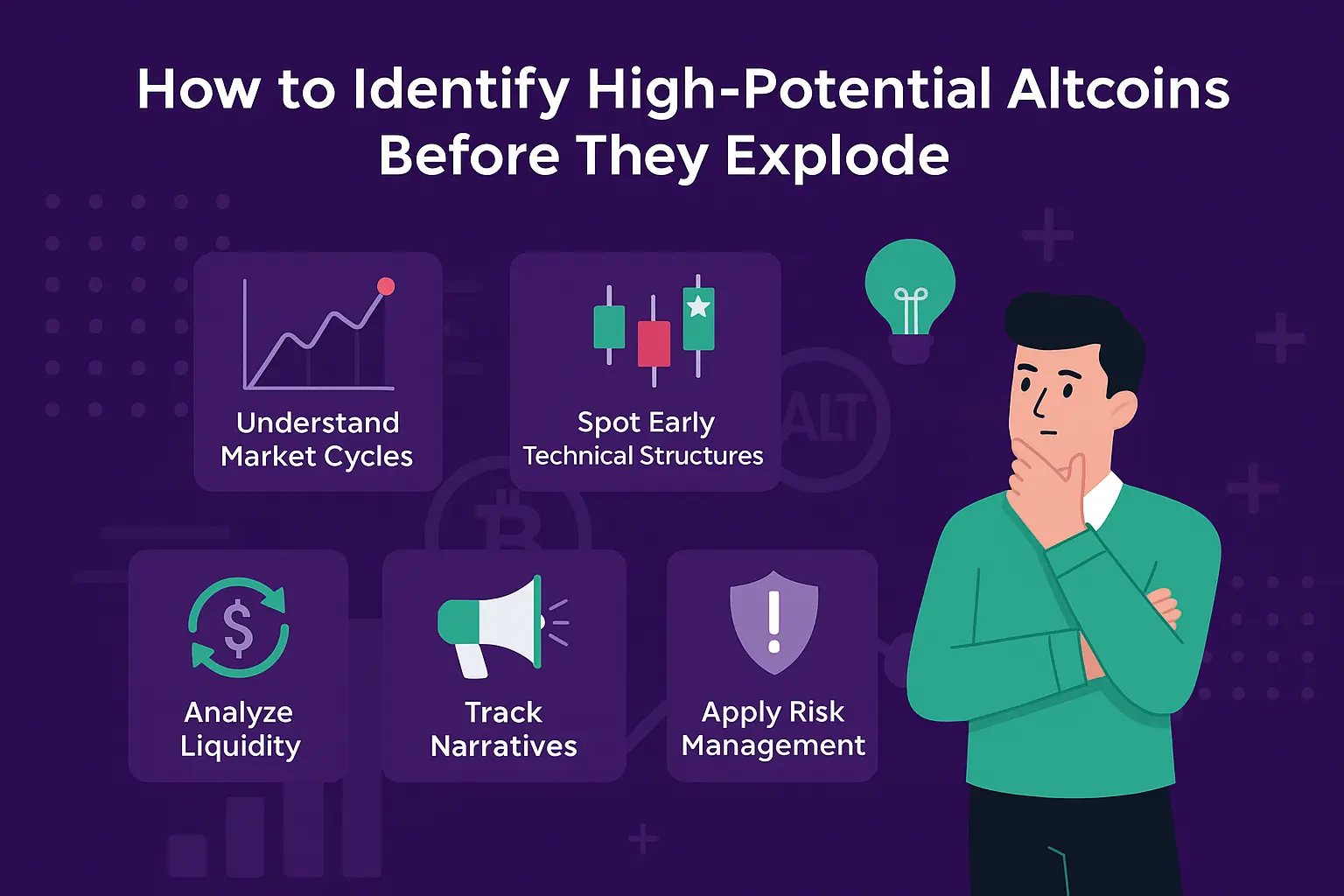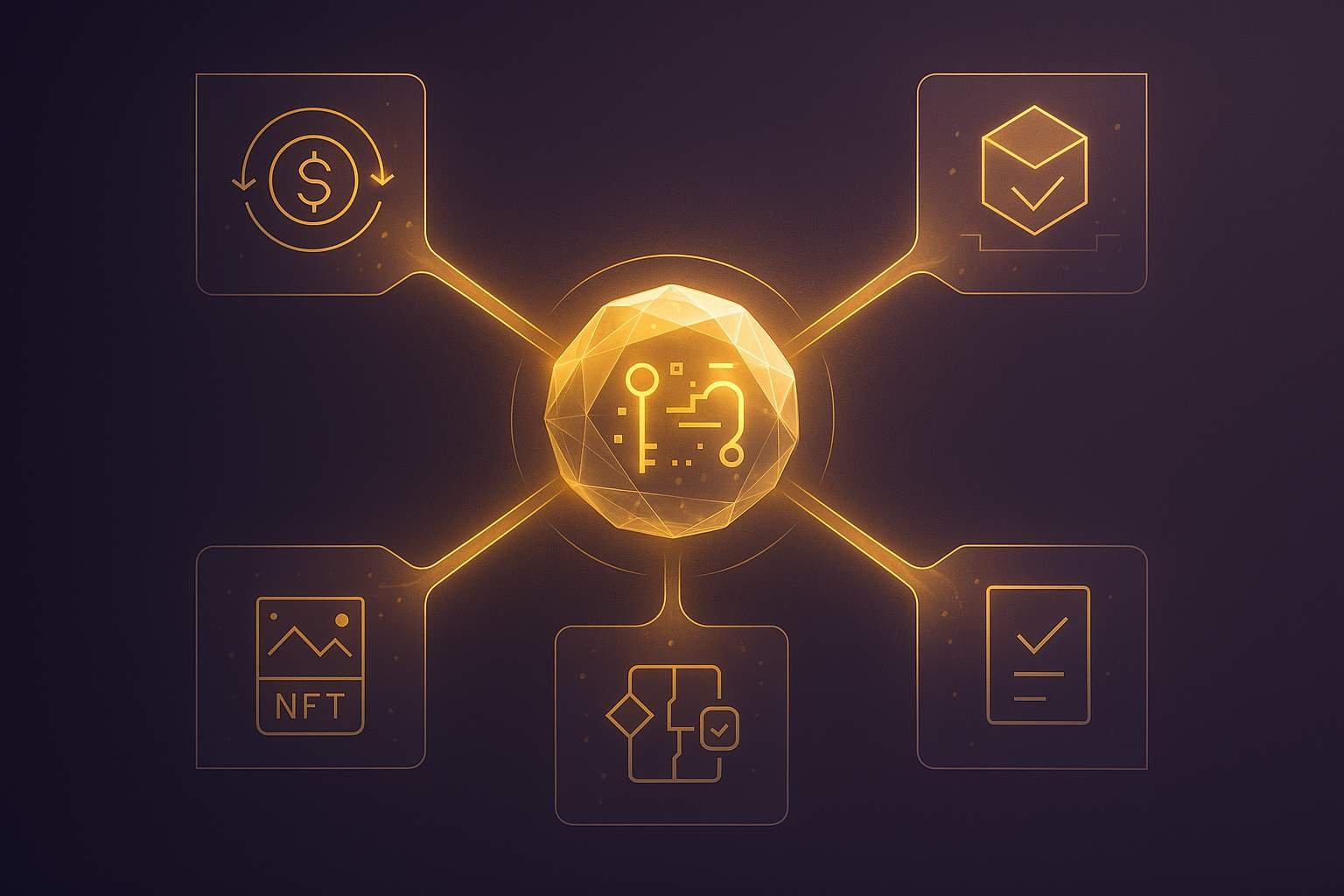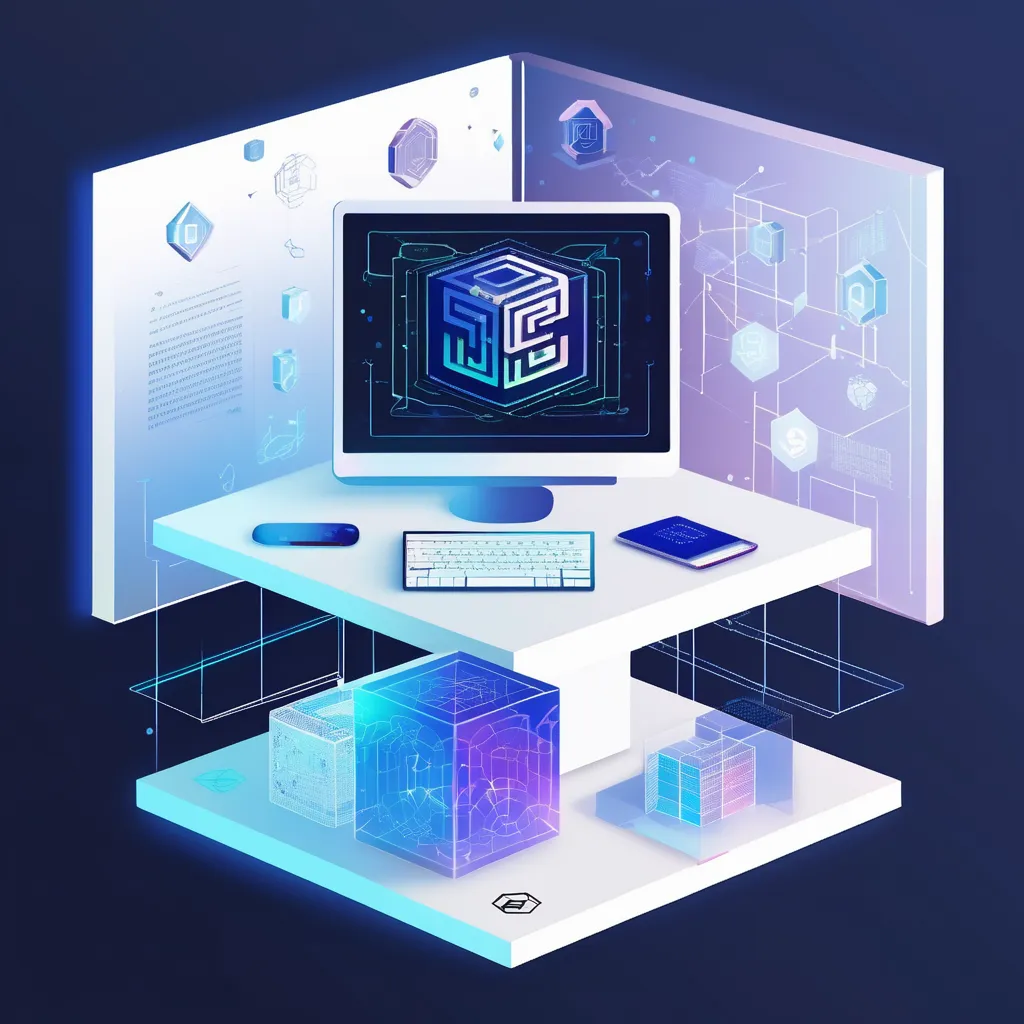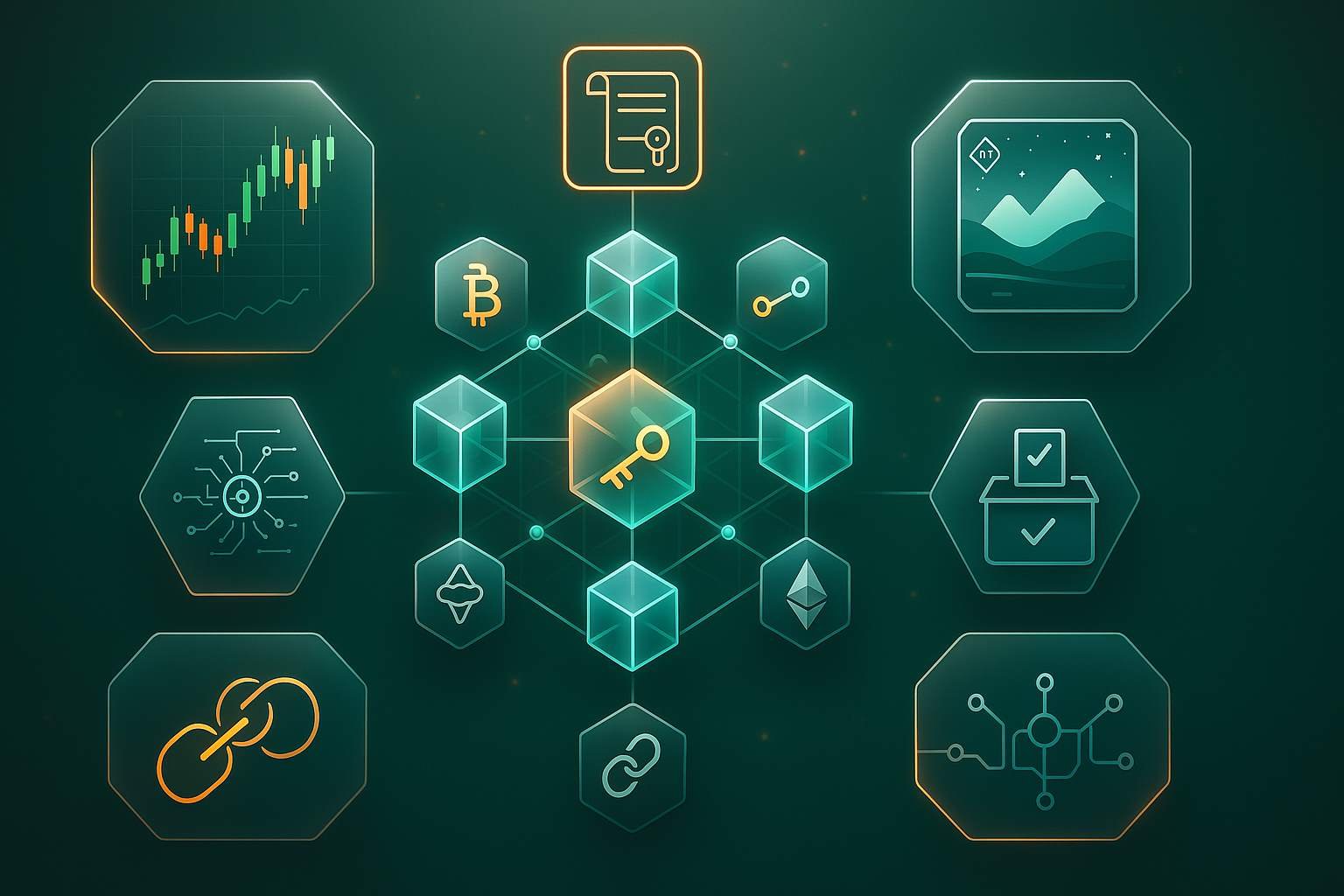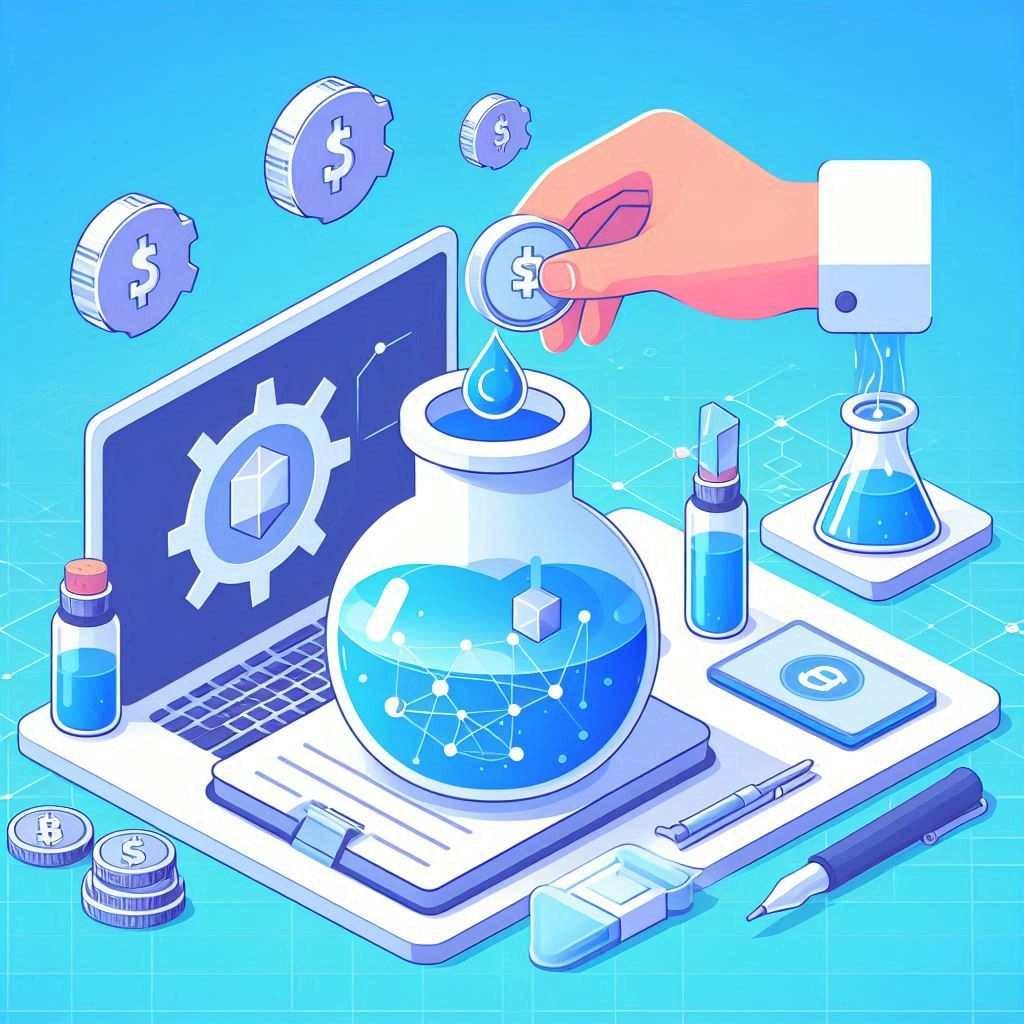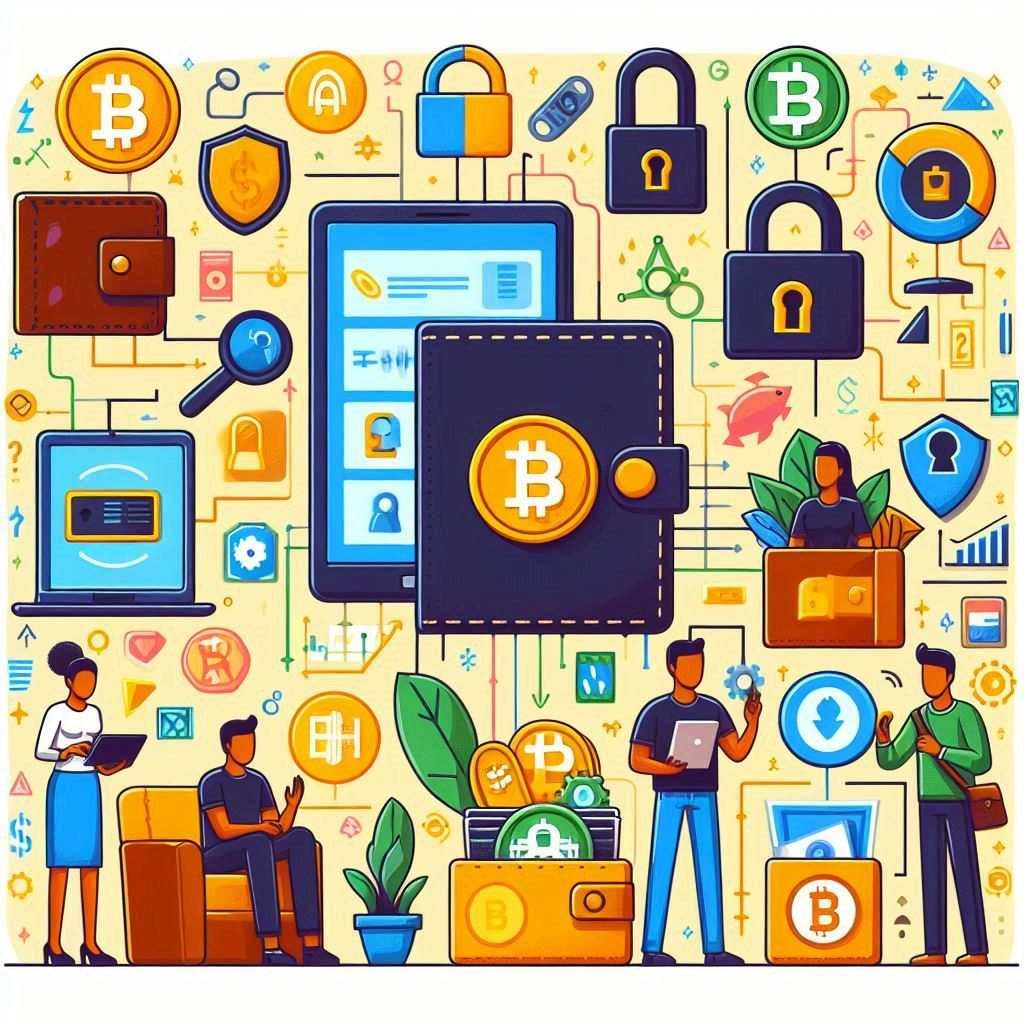Exploring Blockchain Applications 🧭
Blockchain technology offers unique features like immutability and decentralization, ensuring data cannot be altered and removing the need for vulnerable third parties.
These qualities make blockchain an ideal solution for addressing data fragmentation issues across various industries.
While blockchain is best known for powering cryptocurrencies, its applications are expanding into sectors like finance, healthcare, supply chain management, identity verification, and more.
In 1991, researchers Stuart Haber and Scott Stornetta introduced a groundbreaking digital ledger system that securely stored data in a decentralized, tamper-resistant way. This became the foundation of blockchain technology. Nearly two decades later, in 2008, Satoshi Nakamoto used this concept to create Bitcoin, launching the era of cryptocurrencies. Today, blockchain is transforming industries far beyond digital assets.
Blockchain in Finance 🏦
The traditional finance sector has historically been slow to adopt blockchain and cryptocurrencies, with prominent figures like JPMorgan CEO Jamie Dimon and the late Charlie Munger of Berkshire Hathaway dismissing the technology.
However, as the crypto industry has matured, many financial institutions have recognized blockchain’s potential to streamline operations and enhance efficiency.
JPMorgan, despite Dimon’s skepticism, has developed blockchain solutions like Onyx and Quorum, a private version of the Ethereum network. Ethereum, the second-largest blockchain by market cap after Bitcoin, is a leader in DeFi. These tools help JPMorgan improve payment systems, document storage, and other banking processes.
Other major financial institutions are also adopting blockchain:
- U.S. Banks: Citi, Mastercard, and BNY Mellon participated in the Regulated Liability Network, testing blockchain for global B2B payments. Bank of America has praised the Avalanche blockchain for tokenization and holds numerous blockchain patents.
- International Adoption: UBS issued a $400 million tokenized bond on the Swiss SIX Digital Exchange in 2024, and Japan’s SBI Group conducted a tokenized Yen bond transaction on a blockchain.
Globally, blockchain is bringing transparency and efficiency to financial processes, from payments to tokenization.
Blockchain in Healthcare 🚑
In healthcare, data security and privacy are critical for protecting patient records and clinical trial data.
Data fragmentation is a major challenge in the sector. A 2022 study estimated that fragmented systems cost the U.S. healthcare industry up to $1.2 trillion annually in inefficiencies. Many healthcare providers rely on multiple centralized IT systems to store patient data, insurance details, and billing information, creating vulnerabilities. A single breach in one system can expose millions of records.
Blockchain offers a decentralized, tamper-proof alternative, unifying fragmented data without single points of failure. Several companies are leveraging blockchain to improve healthcare:
- Avaneer Health: Used by Aetna and CVS to securely share real-time health data on a private blockchain.
- Synaptic Health Alliance: Includes Humana and UnitedHealth Group, using blockchain to store and manage healthcare data.
- Patientory: Empowers patients to own and monetize their medical data on-chain.
- Guardtime: Partners with pharmaceutical giants like AstraZeneca to streamline drug pricing using blockchain.
Blockchain is helping healthcare providers enhance data security, reduce costs, and improve patient outcomes.
Blockchain in Supply Chain Management 🗄️
Global supply chains involve complex processes, from sourcing to delivery, requiring coordination across multiple parties.
Data fragmentation is a common issue, as each company often uses its own centralized system, leading to inefficiencies, mismatched data, and potential points of failure. For example, a single product may pass through dozens of steps—warehousing, packaging, and distribution—before reaching the customer, but the customer only sees the order and delivery stages.
Blockchain creates a transparent, immutable record of a product’s journey, improving efficiency and trust. Major companies are adopting blockchain for supply chain management:
- Amazon Managed Blockchain (AMB): Consolidates supply chain data for real-time tracking and product history.
- IBM Blockchain: Used by Walmart, Nestlé, and Visa for real-time tracking, efficient inventory management, and reducing food waste.
- Hyperledger Fabric: A blockchain framework adopted by Amazon and IBM for supply chain solutions.
Blockchain helps speed up delivery times, reduce shipping costs, and ensure the authenticity of ethically sourced or genuine products.
Blockchain in Identity Management 🛂
Traditional identity systems often store personal data on centralized servers, making them prone to breaches. For example, the 2013 Yahoo breach exposed the data of 3 billion users, contributing to widespread identity theft issues.
Blockchain offers a decentralized solution, where each node in the network holds a copy of the ledger, eliminating single points of failure. Its immutability ensures data cannot be altered, enhancing security.
Blockchain is revolutionizing identity management by giving users control over their data:
- Worldcoin: Uses biometric iris scans to create a “World ID” stored on the Ethereum blockchain, requiring minimal personal data.
- Brazil’s b-Cadastrados: Enhances the National Civil Identity Card with a blockchain layer, allowing digital verification via QR code. This prevents tampering, reduces the risk of server hacks, and enables users to verify their identity without a physical ID.
Blockchain empowers individuals to own their identity data, potentially monetizing it by sharing it with third parties on their terms, aligning with the Web3 vision of user-controlled data.
Blockchain in Voting 🗳️
Current voting systems face challenges like electoral fraud, ballot tampering, and lack of transparency, which undermine public trust in elections.
Blockchain offers a secure, transparent solution for voting:
- Immutability: Prevents double-voting or tampering with ballots.
- Real-Time Verification: Reduces delays with mail-in ballots.
- Digital Verification: Identifies tampering with physical ballots and verifies voter eligibility.
- Transparency: Allows anyone to audit election results.
Several projects are testing blockchain-based voting:
- Voatz: Conducted successful pilots in U.S. elections in West Virginia, Colorado, and Utah from 2018 to 2021.
- Votem: Integrated into Montana and Washington, D.C. voting systems during the 2016 election and is exploring corporate voting use cases.
- Follow My Vote: Focuses on transparency, enabling public auditing of election results.
Blockchain could restore confidence in democratic processes by ensuring secure and verifiable elections.
Blockchain in Item Authentication 🔎
Counterfeit goods cost the global economy an estimated $1.8 to $4.7 trillion annually. Blockchain’s immutability makes it a powerful tool for verifying the authenticity of products.
Companies are using blockchain to combat counterfeiting:
- Aura Blockchain Consortium: Includes luxury brands like LVMH, Prada, and Mercedes-Benz, using Ethereum to authenticate products.
- Arianee: Partners with Richemont (Cartier’s parent company) to verify luxury goods on the Polygon blockchain.
- Origyn: Creates digital certificates for luxury watches, art, and gold bars on the Internet Computer blockchain.
Blockchain also streamlines authentication processes. For example, online marketplace The RealReal employs over 100 authenticators, but a blockchain-based system could automate this, saving time and resources while ensuring accuracy.
How You Can Benefit from Blockchain
Blockchain’s applications extend far beyond cryptocurrencies, offering solutions for industries worldwide. However, many of these use cases are still in development and may not fully mature.
For individuals, engaging with blockchain often starts with cryptocurrencies, which remain the most accessible entry point. Exploring blockchain-based assets can provide insights into this transformative technology.
At CryptoAnalyzes, we’re here to help you navigate the crypto world with confidence. For VIP analysis services, in-depth trading insights, and personalized strategies, visit Cryptoanalyzes. Want to explore more educational content? Check out our CryptoAnalyzes blog for the latest articles.

